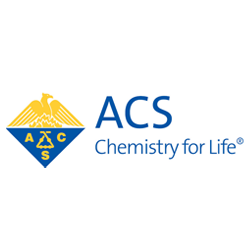
ACS Community
636062694
Florence, AL 35632 United States
communities.acs.org
AmerChemSociety
AmericanChemicalSociety
American Chemical Society
Overview
The American Chemical Society (ACS) is a 501(c)(3) non-profit organization chartered by the U.S. Congress. Founded on April 6, 1876, ACS is one of the world's largest scientific organizations, with a membership exceeding 200,000 individuals from over 140 countries. It is dedicated to advancing the chemistry enterprise and improving people's lives through the transformative power of chemistry.
History
The ACS was established during a meeting of chemists at the University of the City of New York (now New York University). The society received its charter from the State of New York in 1877. Charles F. Chandler, a key organizer, envisioned the ACS as a stimulus for original research and a bridge between chemists and the public. John William Draper, a renowned photochemist, was elected as the first president.
Mission and Activities
- Mission: The ACS is committed to advancing scientific knowledge, empowering a global community, and championing scientific integrity. Its vision is a world built on science.
- Publications: ACS is a leading source of authoritative scientific information, publishing over 80 peer-reviewed journals, including the prestigious Journal of the American Chemical Society and the weekly magazine Chemical & Engineering News.
- Conferences and Education: The society hosts national and regional meetings, providing opportunities for networking and professional development. It supports STEM education through grants and scholarships.
- Policy and Advocacy: ACS works to promote public policies that foster the chemistry enterprise, focusing on areas such as innovation, education, and environmental protection.
Programs and Initiatives
- ACS Scholars Program: Offers scholarships and mentoring to underrepresented minority undergraduates in chemical sciences.
- Project SEED: Provides research opportunities for economically disadvantaged high school students.
- Advancing Chemistry Teaching: Supports professional development for science educators.
- ACS Green Chemistry Institute: Promotes green chemistry principles in all aspects of the chemical industry.
Notable Achievements
- CAS REGISTRY: Maintains a database of over 219 million unique substances and sequences.
- CAS Reactions and Patents: Provides access to millions of reactions and patents from around the world.
- Nobel Laureates: Hosts publications from numerous Chemistry Nobel Prize winners.
Financial Profile
As a non-profit organization, ACS generates revenue primarily from program services, including its Chemical Abstracts Service, alongside contributions, royalties, and investments. Its financial model supports extensive educational and research activities.
Membership Structure
ACS members come from a diverse background of chemists, chemical engineers, and related professions. The organization has over 185 local sections in the U.S. and international chapters, facilitating global networking and community engagement.
[1] https://www.acs.org/about.html [2] https://projects.propublica.org/nonprofits/organizations/530196572 [3] https://www.acs.org/about/aboutacs.html [4] https://en.wikipedia.org/wiki/American_Chemical_Society [5] https://stm-assoc.org/member/american-chemical-society/
Podobné organizace
American Orchid Society Inc |
|
International Adsorption Society Inc |
|
New Jersey Institute of Chemists Division of American Institute Of |
|
American Society for Pharmacy Law |
|
American Chemical Society |
Podobné organizace global
THE HISTORICAL ASSOCIATION |
|
INTERNATIONAL ASSOCIATION FOR APPLIED ECONOMETRICS |
|
Australian Council For Computers In Education (Acce) |
|
Bioprocessing Network Inc |
|
Australian Computer Society Incorporated |
Podobně sociální sítě (997275)
Nadace TLAPKA4099999 |
|
Lékaři bez hranic - Médecins Sans Frontiéres in Czech Republic, o.p.s.11011062 |
|
Asociace křesťanských spolků mládeže, z. s.2000000 |
Novinky
For almost 70 years, scientists have been puzzling over this mystery goo from an ancient Greek shrine near Pompeii. Initially, archeologists thought that it must be really old honey, but data supporting that conclusion haven’t been collected until now. Researchers publishing in the Journal of the American Chemical Society analyzed the ancient residue using several modern analytical techniques. They’ve identified it as honey, even if it’s mixed with other plant or animal products. As for whether you can eat this 2,500-year-old honey, well, more research might be needed. Image 1: The bronze jar on display at the Ashmolean Museum which contained a mysterious substance (shown in the foreground) that is very likely ancient honey. Image 2: Likely what 2,500-year-old honey looks like, according to new tests using modern techniques. Learn more about this study: https://brnw.ch/21wUxKF (fb)
Meg A. Mole is excited to meet all of you at ACS Kids Zone! Join us for a free community event in Washington, D.C. for kids and families to learn about science with fun hands-on activities with real scientists. #ACSKidsZone Register here: https://brnw.ch/21wUxtL (fb)

Poslední komentáře
Excited to see how the ACS Network is evolving! It's a fantastic resource for collaboration and connecting with fellow chemists. Let's keep pushing the boundaries of science together! 🌍🔬detail |
|
The focus on Green Chemistry is so inspiring! It’s crucial for the future of our planet. Can't wait to see how we can innovate and make a positive impact! 💚♻️detail |
Poslední diskuze
What are some innovative strategies that NGOs can employ to promote green chemistry practices in local communities?Odpovědí: 3, Naposledy před 1 den detail |
|
How can collaboration between the American Chemical Society and NGOs enhance public understanding of scientific research related to environmental sustainability?Odpovědí: 3, Naposledy před 1 den detail |
V okolí
4.5
Florence
O společnosti
- -
ACS NETWORK Chemistry Community Online ACS Community Welcome to the new ACS Network Ask questions collaborate and connect with members of the chemical community. Collaboration Areas ACS HUB Learn more about the ACS Network and ask general questions Component Groups Supporting ACS Local Sections ACS Divisions and other groups Governance For those who participate in the ACS governance process Science Talk about sciencerelated topics Special Interests Discussions and collaborations for special interest groups. Featured Green Chemistry The Nexus Blog Connecting and Expanding the Global Green Chemistry and Engineering Community. Ask an ACS Chemist Ask about general chemistry and other science related topics.

















